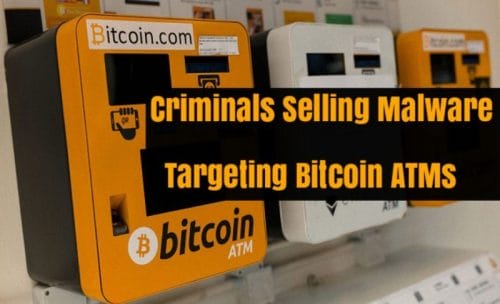Surely in your travels you’ve encountered the idea that we’re all virtual beings living in a computer simulation. Said simulation would then be able to create perceptions of reality on demand rather than produce one concrete reality all the time, in a uniform static event. It’s a compelling idea. Terrifying and compelling.
Let’s explore the simulation idea some before we get into it.
The only reality we know is the one we can collect data on using our sensory organs. In terms of how we know something is real, we can’t really know anything beyond what our senses tell us, although some believe we can deduce through math. An interesting idea.
Some of us turn into right assholes and go down the self centred philosophical rabbit hole of believing reality is constructed specifically for them, and others come up with the idea that we’re all living in a simulation. The effect is similar, though. The solipsist (the asshole in the equation) and the simulation theorist hit on core questions revolving around ethics, purpose and how we can determine what is and is not useful knowledge.
Personally, I find the simulation theory untenable. It’s unfalsifiable and therefore unacceptable. But it does put a few things in perspective.
Like the metaverse. If we’re all living in a simulation than is the metaverse a microcosm of the simulation we’re all living in? Are there things we can learn about the way we construct reality through our microcosm of reality construction?
Maybe. Maybe not.
Let’s see what went on in the simulation this week, shall we?
Codebase Ventures rebrands as Cypher Metaverse

Codebase Ventures (CODE.C) is rebranding themselves as Cypher Metaverse, which is a name they feel better represents their operation.
I imagine this involved focus groups and fireside chats with the company led by the CEO regarding the direction of the company. Either way, they worked with their advisors to shape their investment thesis and identify early stage investments—these include decentralized finance and the metaverse—so the shift does make cohesive sense.
Here’s the gist of their investment thesis:
Development in blockchain technology has helped millions of previously unbanked people get into DeFi, similar to the internet in the 1990’s worked for business. Cypher believes DeFi will do the same for finance in near future.
There are still an awful lot of stumbling blocks and questions to be answered about the efficacy of decentralized finance in the coming years, but this overall isn’t a bad bet for a company at this level of investment looking to differentiate itself from the rest of the pack.
The company’s investments have been largely in DeFi, and now they’re looking for ways to profit and hope to get the company into position to participate in governance decisions in various protocols, helping to take a positive stance in shaping DeFi as it develops. Ditto for the Metaverse.
Although I’ll admit, I don’t see the value of the metaverse quite yet. Actually, it’s worse than that. I see asymmetrical value like a snake oil salesmen and his marks, and haven’t seen much to suggest its anything to the contrary. But if DeFi and the Metaverse are going to fulfill their promises in the future, we’re going to need to see more companies out there doing this type of thing.
I don’t see us much learning anything from the metaverse as simulation here.
Bitcoin Well to offer in-person bitcoin services
We haven’t written an awful lot about Bitcoin Well (BTCW.V) because frankly, there’s not much to say about them. They’re the company behind those dusty Bitcoin ATMs that were new and novel in 2015 but now just seem like eyesores at the back of second rate convenience stores.
Oh, let’s not forget that they’re criminal magnets and not particularly secure for anyone’s investment. At all.

Regardless, their diversification came late. Now they’ve signed an agreement with CNA Financial Services to offer in person bitcoin services and enable CNA to offer bitcoin to their clients.
“We are utilizing our internal expertise, processes and technology to expand and scale our customer and revenue base without having to invest additional capital of our own. This is truly a win-win-win scenario for CNA, Bitcoin Well and our mutual clients who have an interest in buying bitcoin in the fastest and safest way possible. We are actively expanding beneficial business arrangements, like we have with CNA, as we grow our ecosystem of products and services to offer the convenience of modern banking with the benefits of bitcoin,” said Adam O’Brien, founder and chief executive officer of Bitcoin Well.
They intend to use their proprietary tools and processes in compliance with all the appropriate and inappropriate regulations in Canada to handle transactions and the rest of the administrative responsibilities associated. But what’s not immediately apparent is why anyone would buy Bitcoin from a company, when an exchange will likely charge far less and give you far more control over your investment.
NFTs and simulations and metaverses, oh my
ePlay Digital (EPY.C) revealed game characters for Howie Go Viral, Big Shot Basketball and Klocked at the Game Developer’s Conference in San Francisco earlier this week.
Each character comes with a unique style, appearance, various unlockable content, skins and features. For example, Naomi, the first game character released comes with three free months, Klocked race registration, Spartan gear, and special audio and visual effects.
“We are creating ways to make it easier and easier to immerse into the sports metaverse,” says Trevor Doerksen, chief executive officer of ePlay Digital and co-creator of Klocked fitness app. “Releasing game characters as NFTs allow users to create profiles and move between games and apps seamlessly.”
Specifically these products are meant to supplement the company’s Klocked World metaverse addition. This is a virtual world where users can buy, sell, collect, build, unique virtual sports and other varieties of entertainment real estate.
This platform is mapped over the surface of the globe, giving anyone the ability to purchase the metaverse analog of any place on earth. So if someone offers to sell you the Brooklyn Bridge or swampland down in Louisiana, they may actually be on the level.
As far on the level as this metaverse bullshit gets anyway and honestly I haven’t seen much to indicate that this isn’t just bad spin and even worse market wankery. But if this is your thing or if you have more faith that this isn’t just a load of horseshit used to fleece the rubes, then have at it. Prove me wrong.
I’d like to be wrong about the metaverse but I don’t think I am.
You buy your NFTs and fill out your private little Sandbox (or Decentraland/Axie Infinity equivalent) and maybe set up a virtual shop so people can come in and buy your virtual wares for crypto. You pay extra for some cute little facial expression on your avatar, and maybe a digital Maserati to make up for the one you can’t afford in real life.
You escape for a brief period. There’s a strong market value on escaping from your daily life. Caribbean cruise lines, the entire city of Las Vegas, and Hollywood have been making bank on it for years. But at the end of your vacation, or when the lights finally come up, you come away with something to further the connection. You can talk about what happened on vacation, or reminisce about the times you had on the strip, or connect with friends and family over the movie as a cultural artifact.
When you log out of the metaverse all you have is your life, except you’re a little older and a little fatter and a little worse off for spending money on something that brings no value to the life you’re wasting one NFT at a time.
But hey! You own Rogers Arena in the metaverse. Good for you.
NVIDIA rolls out their Omniverse for Game Developers
Earlier this week NVIDIA (NVDA.Q) announced the development and launch of new features for their NVIDIA Omniverse, which make it easier for developers to share assets, sort through libraries, collaborate and get some artificial intelligence into the animations for their characters’ facial expressions and the like.
Omniverse is a multi-GPU enabled open platform for 3D design and real-time physically accurate simulation. It runs on any NVIDIA RTX device, be it a laptop or a server. It’s built on Pixar’s Universal Scene Description, which is a open source 3D scene description and file format for content creation is among the most popular tools for game development.
The aim here is consolidation of function. They’re putting together multiple different programs and other problem-solving solutions into one basket for game designers to use to build the next badass game.
What this is is a real-time design and simulation platform where game developers can use AI and other tools, or build their own, to streamline their development. New features include updates to their Omniverse Audio2Face, Nuclear Cloud and DeepSearch as well as the introduction of the Unreal Engine 5 Omniverse Connector.
“Omniverse provides a powerful development pipeline that addresses the challenges of doing business in today’s world,” said Frank DeLise, vice president of Omniverse at NVIDIA. “Its ability to unify artists, art, tools and applications under a single platform can inspire collaboration among even the most dispersed game development organization.”
Components featured in the Omniverse platform for game developers include:
- Omniverse Audio2Face, an NVIDIA AI-powered application that enables character artists to generate high-quality facial animation from just an audio file. Audio2Face now supports full facial animation and artists will have the ability to control the emotion of the performance as well. With Audio2Face game developers can quickly and easily add realistic expressions to their game characters, which can facilitate a stronger emotional connection between the gamer and the game characters, expanding immersion.
- Omniverse Nucleus Cloud, now in early access, enables one-click simple sharing of Omniverse scenes, removing the need to deploy Nucleus locally or in a private cloud. With Nucleus Cloud, game developers can easily share and collaborate in real time on 3D assets among internal and external development teams.
- Omniverse DeepSearch, an AI-enabled service now available for Omniverse Enterprise subscribers, that allows game developers to use natural language inputs and imagery to instantly search through their entire catalog of untagged 3D assets, objects and characters.
- Omniverse Connectors are plugins that enable “live sync” collaborative workflows between third-party design tools and Omniverse. The new Unreal Engine 5 Omniverse Connector allows game artists to exchange USD and material definition language data between the game engine and Omniverse.
LeoNovus wins government contract
LeoNovus (LTV.V) was awarded a contract by the Government of Canada to supply them with litigation software, including a secure transfer solution, earlier this week.
The tech pieces on offer are called LeoNovus Vault, Smart Filer and Xvault, and they’re the foundational technologies in building the new file sharing, transfer and storage solution called Torozo. It’ll go out as a software-as-a-service (SaaS) offering to individuals, businesses and enterprises soon.
“A key corporate objective, for the past four years, was to develop and deploy secure file sharing, data management and data storage solutions for the government of Canada. This standing offer provides a process to sell a secure data transfer solution to any government department through defined pricing and proof of concept to validate and obtain future call-ups,” said Michael Gaffney, chair and chief executive officer.
The next step involves spit and polish testing of some of the functional requirements, as well as meeting all the regulatory hoops from the international organization of standardization and system and organization control certifications from the Department of Justice and Shared Services Canada.
Damn. It’s honestly beginning to seem like we have a government organization for every facet of public life. No wonder we pay so much in taxes.
“There are numerous economic drivers that support our product vision and its benefits. In March, 2021, Shared Services Canada and the Department of Justice issued an RFP with the essential requirement being secure file sharing within and outside the government. We believe that this is a general requirement for many government departments, federal and local, and the private sector. The pandemic increased the need for secure work-at-home solutions. Sharing, storing and transferring medical records, mergers and acquisitions, financings, non-fungible tokens, and cryptocurrency backups are other large market segments. Torozo will solve many other secure data sharing, transfer and storage needs,” said Gaffney.
Mogo grows an investment arm
Mogo (MOGO.T) put together Mogo Ventures to take care of its existing investments in strategic partners and companies in support of Mogo’s ecosystem.
This includes:
- A 39-per-cent stake in Coinsquare, one of Canada’s leading crypto exchanges;
- Investments in leading and emerging crypto and Web3 platforms, including Gemini, NFT Trader and Tetra Trust;
- Investments in gaming companies, including Enthusiast Gaming and Eleven Gaming;
- Investments in bitcoin and ether.
Some of these like Enthusiast Gaming (EGLX.T) are Gemini are good bets. Coinsquare isn’t. They’ve got some rep-rehab to do after their wash-trading scandal from last year. But unloading their C-suite and getting some new backers in the shape of Mogo could definitely work in their advantage towards that end.
Mogo ventures will also handle their legacy investments, including Hootsuite, Blue Ant Media and Alida, with a focus on monetization.
“Over the past several years, Mogo has been able to leverage its leadership position in the Canadian fintech industry to make attractive strategic investments in a number of leading and emerging players in the broader crypto, Web3 and gaming ecosystems, and today’s announcement highlights the significant value that these investments now represent for Mogo shareholders. As we continue to build out Canada’s leading financial technology and payments platform, we will continue to look for ways to participate in value creation opportunities with our partners that drive incremental shareholder value,” said Greg Feller, president and chief financial officer.
There wasn’t much in the way of commonality regarding the relationship between simulation and metaverse, and if there’s anything to be gleaned from the other entries in relation, it’s probably that whoever’s running the sim—if anyone or anything is—they’ve been absent for quite awhile. Or they have a sense of humour beyond our understanding.
Probably the latter.
—Joseph Morton







